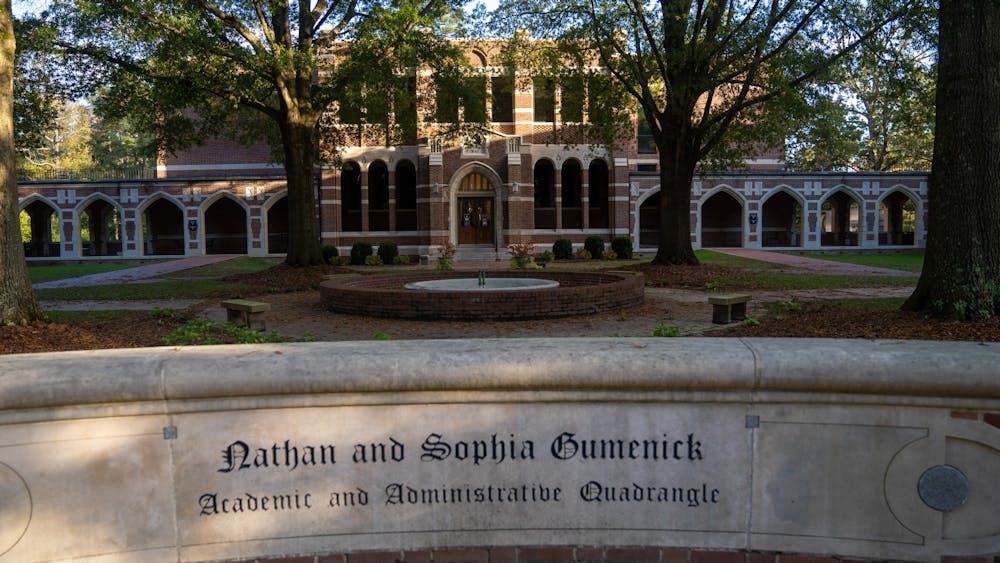Nearly the same number of students at the University of Richmond who chose to study remotely for the fall semester chose to study remotely during the spring.
As of Feb. 2, 302 students are taking classes remotely, Dean of Westhampton College Mia Reinoso Genoni wrote in an email to The Collegian. In the fall 2020 semester, 303 students enrolled to take classes remotely. This is approximately 9.6% of total undergraduate students.
Students were notified about spring semester study plans, including the option to study remotely, in an Oct. 8 email sent by Jeffrey Legro, executive vice president and provost, and Steve Bisese, vice president for student development.
The deadline to request remote study for the spring was Oct. 30, 2020, according to UR's website. Additionally, students who had not lived on campus during the fall semester were able to apply for on-campus housing for the spring by Nov. 1, 2020, Legro and Bisese wrote.
Students intending to study remotely were able to enroll in hybrid courses scheduled for online or in-person instruction but were encouraged to select courses offered fully online when possible, according to UR's website.
Christopher Ortiz, a sophomore who studied remotely in the fall, said the increase in COVID-19 cases across the United States, especially in his home state of Illinois, had been concerning as he considered coming to campus for the spring semester.
"My family and I came to the decision that we should stay, at least for the fall semester, at home," he said. "Ultimately I made a decision mid-January to revert back to remote."
Ortiz said he had originally planned to study on campus during the spring semester.
"Given the magnitude of the spike in cases in my area and just seeing how successful I was last semester being remote, it kind of gave me the confidence that I would do well this semester, as well," he said.
Noella Park, a senior at UR, said the rise of COVID-19 cases on campus contributed to her decision to switch to remote learning during the spring semester.
Park began the semester on campus and took classes in person for two weeks, she said. Park decided to continue the rest of the semester remotely from her home in California for personal reasons and to be close to her family, she said.
"All of my professors were super understanding, and I haven't run into any problems yet being a full remote student," Park said.
Enjoy what you're reading?
Signup for our newsletter
Jonathan Jenkins, a junior, took the fall semester off and worked in California, he said.
"When we first got sent home last year in March I really, really struggled with online school," he said. "When August rolled around, I was feeling unsure about the next year."
Jenkins said the decision to take a semester off was difficult, but that he was grateful for his time in California where he could expand his knowledge beyond UR's campus and make new friendships.
Jenkins decided in November to return to campus to take classes in-person during the spring, but as of Feb. 3 had to take classes online while in isolation because his roommate was exposed to the COVID-19, he said.
Ortiz feels the remote learning experience is easier this semester compared to last March when UR transitioned to remote online instruction, he said.
"I do feel a sense of independence and the sense that I really do have control over what I'm taking, when I can take it," Ortiz said. "The staff and the professors have been wonderful too.
"There were some challenges to [remote learning], but primarily their support and being in a good environment, at least in the one I'm in at home, really made a difference."
Contact investigative editor Morgan Howland at morgan.howland@richmond.edu.
Support independent student media
You can make a tax-deductible donation by clicking the button below, which takes you to our secure PayPal account. The page is set up to receive contributions in whatever amount you designate. We look forward to using the money we raise to further our mission of providing honest and accurate information to students, faculty, staff, alumni and others in the general public.
Donate Now



